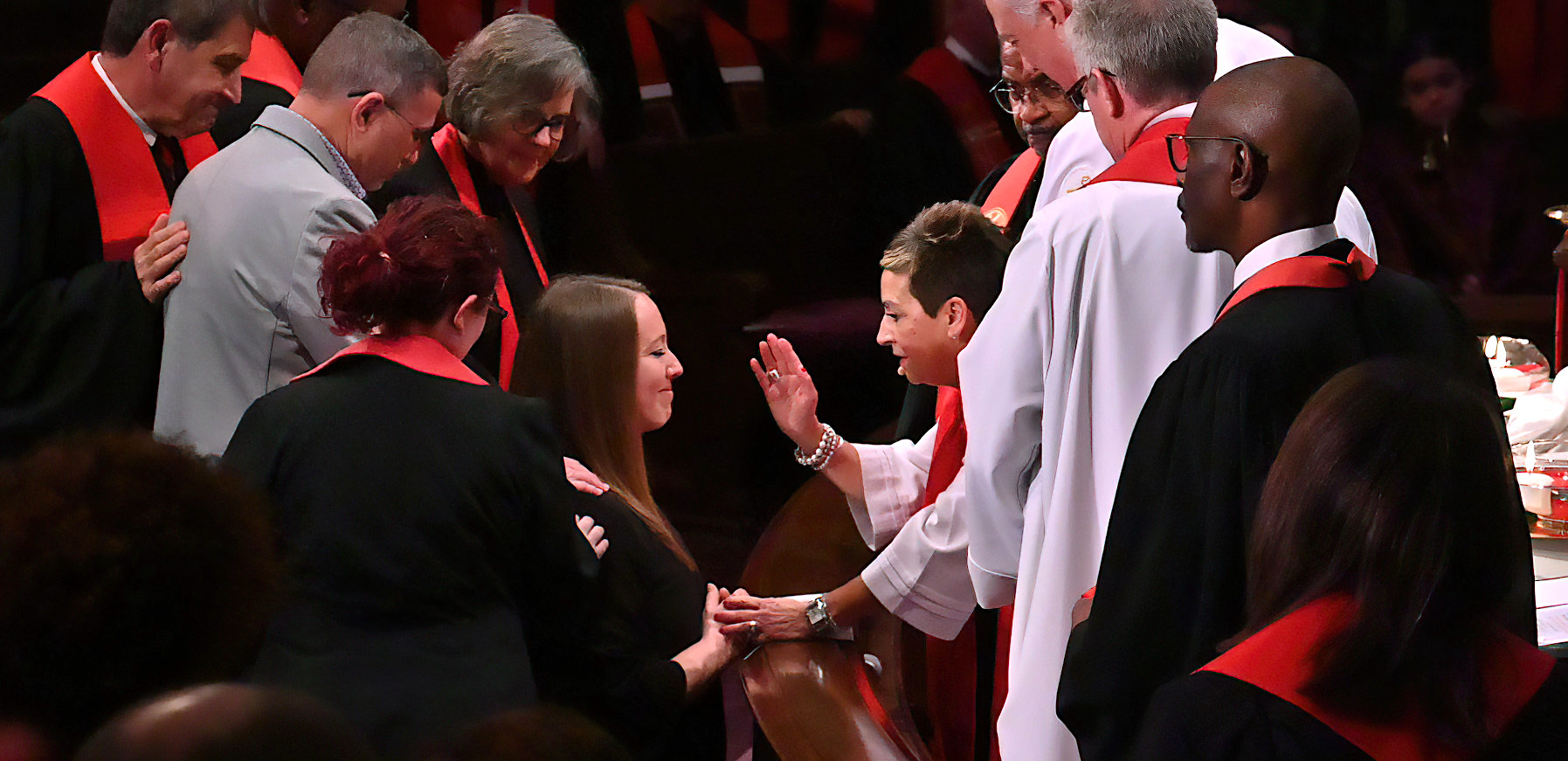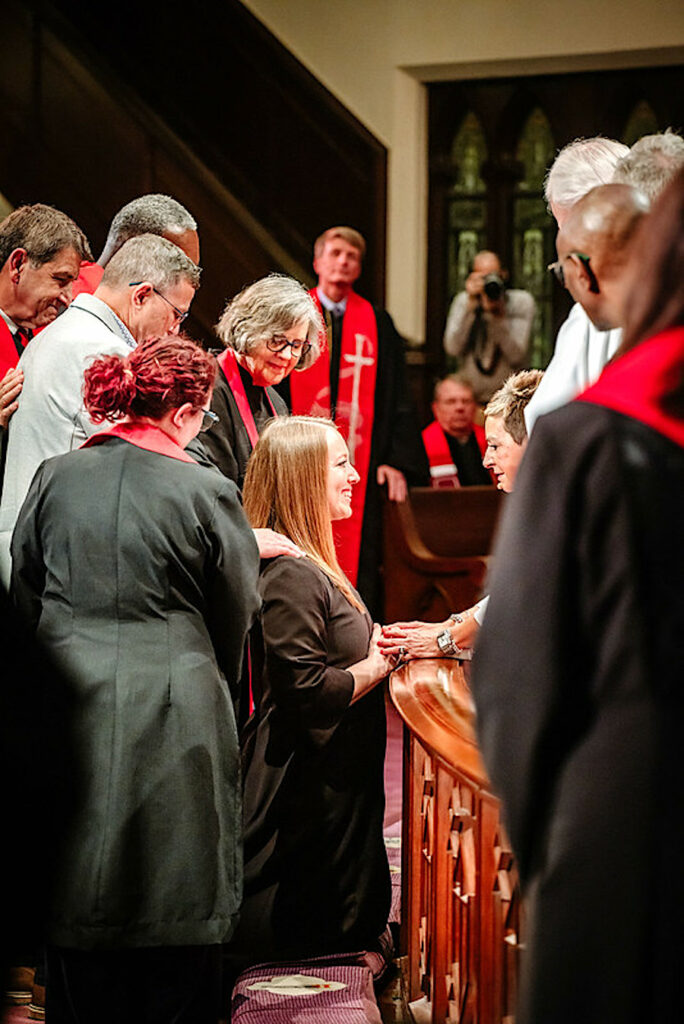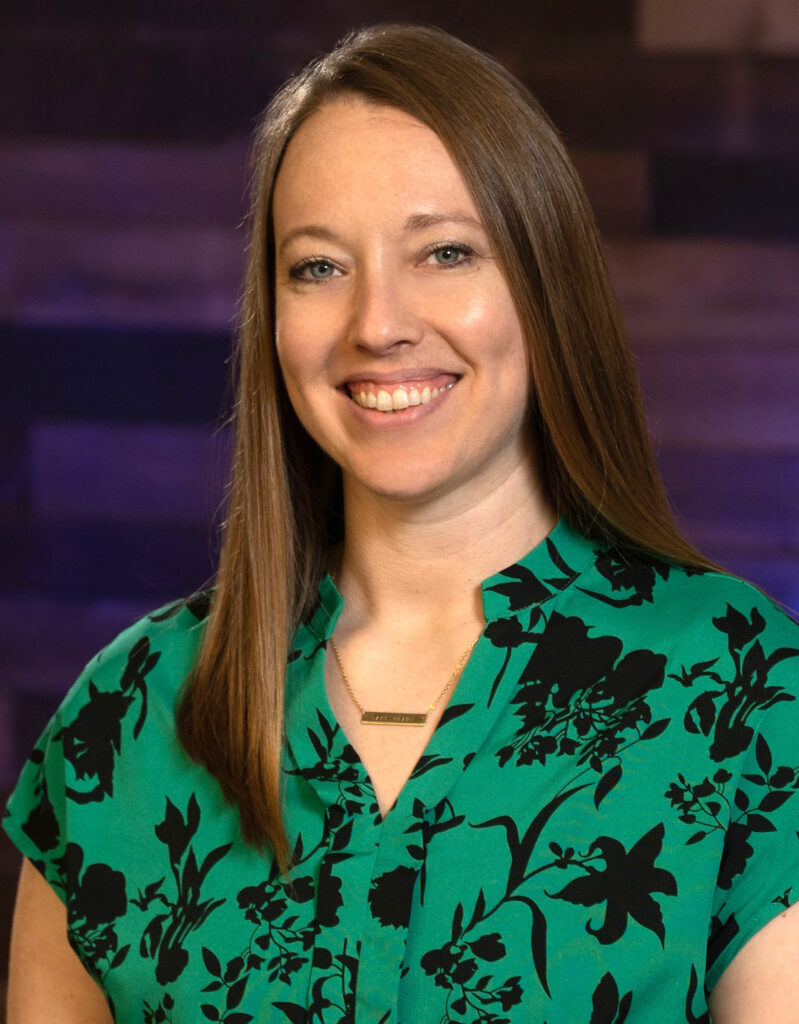
By Ronnie Crocker
The Rev. Thea Curry-Fuson graduated Pasadena High School in 2001, entering adulthood shortly before a period of extraordinary global tumult.

Her eventual career in the ministry has been forged by wrenching events as well. First, there was a global pandemic and then the departure through disaffiliation of hundreds of United Methodist congregations across the Texas Annual Conference. Among those who voted to break away were parishioners at the church in West Columbia where Curry-Fuson was serving as pastor.
She opted not to join them and wound up back at First United Methodist Church Pearland, where she had started in 2016 as director of family ministries at its Manvel campus. She became a licensed local pastor in 2019 and served as family pastor to both campuses. She was still in Pearland when the NewSong contemporary service launched in 2020, before taking positions in Lake Jackson and then West Columbia.
Her long journey to ordination also included seminary at Southern Methodist University’s Perkins School of Theology. She was ordained at the Annual Conference session in May.
Curry-Fuson, 39, spoke to Cross Connections about her personal spiritual development – which included coming to the Methodist faith in her mid-20s after working in programming for nonprofit organizations – and the impact of all this upheaval.
“It’s just increased my focus on people,” she said. “On both sides of the issues, there are people who have lost community, who have lost connections, who have lost trust in their leaders. I just continue to try to hold space for those people.”

Following are excerpts from that conversation, lightly edited for length and clarity.
Q. Let’s talk about your path into ministry. When did you first start to discern a calling?
A. It was less than a year after joining the church, as I began to serve and lead, and that space was made available to me. I was also gifted having two female pastors. I was able to see a lot of myself and my gifts and talents in those two women. I started to dream and even wrestle with, “Can I really do that?” Yeah, it was early in my faith journey.
Q. What were you doing for work at the time?
A. I worked for Junior Achievement of Southeast Texas, both getting companies excited to support financial literacy and entrepreneurship skills in schools, as well as getting the schools excited to welcome those business partners in.
Q. In the broadest terms, what has your ministry journey been like?
A. Interesting, exciting, very fulfilling, difficult, challenging, and rewarding.
Q. How have your experiences leading the contemporary worship service NewSong at FUMC Pearland shaped your perspectives?
A. We launched in the middle of Covid, in the middle of 2020, and after last fall have continued to see another kind of change. Now we have this opportunity. We’re not a true church plant, we’re not off in our own building. We’re a part of this current church, First United Methodist Church, but we have an opportunity to try something new and to take risk and to really broaden our horizon to look beyond ourselves and to truly see our neighbors and people nearby and to hopefully be moved toward them. That’s an exciting place to be. Because we have experienced so much change in three short years, we have a willingness to continue to discover who we’re really going to be. As clergy, I think it’s important that we continue to be willing to do the same, no matter the long history our congregations may hold.
Q. How did the disaffiliations affect what you do today?
A. We’re dealing with people who are in pain and grieving and, though they have made the decision to not continue where they were, they are still hurting from that decision and their time spent and their energy poured into, what they believed in. I continue to be reminded that these are people. They’re not a commodity. They’re not a number, a dollar sign. These are real lives, real families, real children and youth who are confused and hurt.
Q. What other impacts did the pandemic have?
A. I would say the same, a refocus on people. During 2020, I was convinced even more that I am not called to a computer screen. I’m called to people. The only way I survived was making a conscious effort to reach out and talk with people and find safe ways to do that and to continue to connect and to hold those relationships as sacred and important.
Q. How do you feel about being a minister at this point in U.S. history, given the divisions that we see and hear about?
A. It’s the thing I want to do, It’s the help I can offer. I can’t fix Washington, I can’t fix Austin, I can’t even try to be some sort of bridge between the two sides, I can just focus on the people in my life, in my circle, in my realm and see them and treat them like people – even if we disagree, even if we do things differently. And my only hope is that while Christians may have a really bad rep, maybe someone, if they meet me or have an exchange with me, they can say, “Well, there was this one that was different. Who didn’t judge me, who didn’t exclude me, who didn’t draw some line that I wasn’t allowed to cross.”
Q. What plans do you have for your ministry going into the rest of 2023 and 2024?
A. My plans include continuing to invite the congregation into the conversation. For the first time, this community gets to decide who they are and who they are going to be. My goal is to continue to make space for varied voices and new leadership and how the Holy Spirit is working in these people by daring them to dream.
Called to Ministry is a new series about the 2023 ordination class. If you have been wondering if God could use you to lead other Christians, perhaps God is calling you to consider preparing for full-time ministry. Check out our Called to Ministry page or email .
